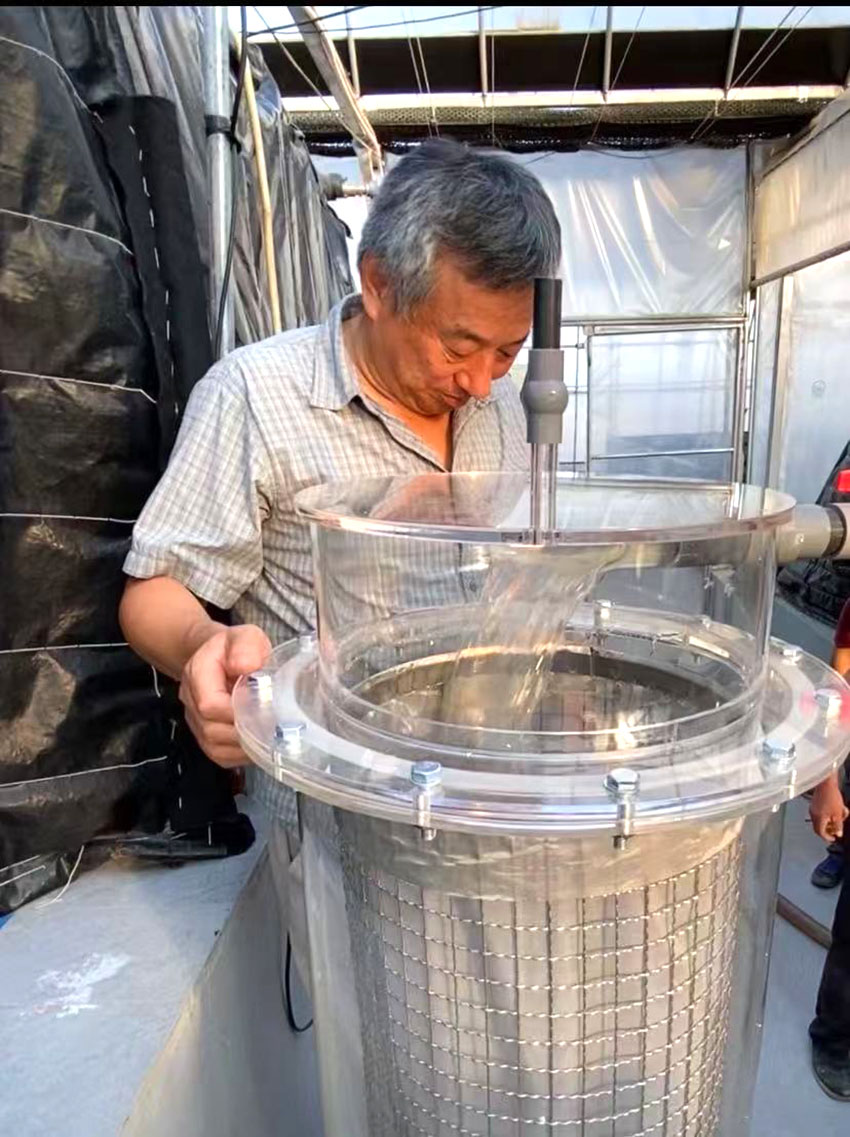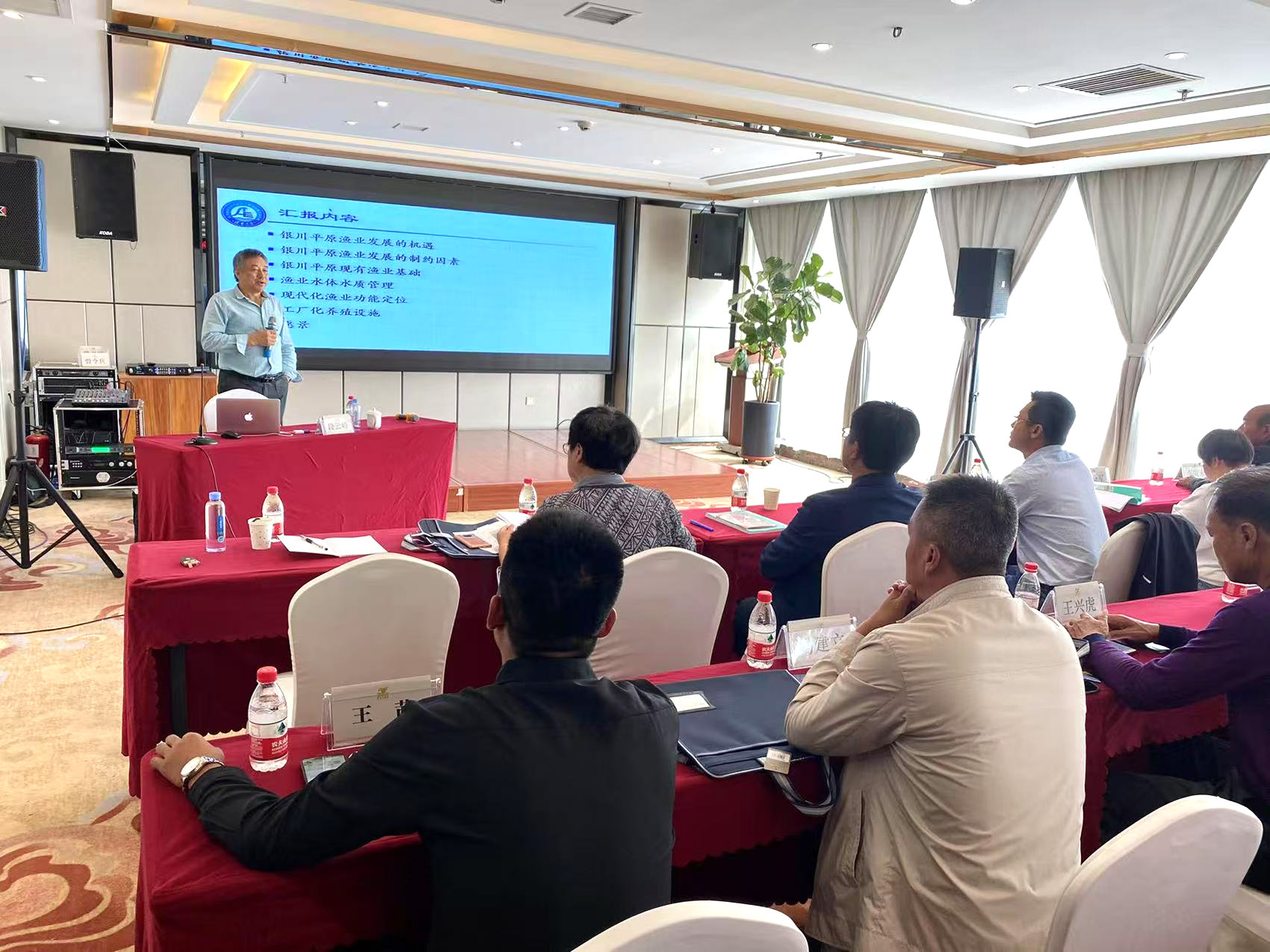Sustainable model enables Pacific shrimp to be raised in rugged Ningxia

A retired professor from Tsinghua University has revolutionized shrimp farming in Northwest China, developing a sustainable model that uses recycled water to raise Pacific white shrimp in the arid climes of the Ningxia Hui autonomous region.
To diversify the local aquaculture species, farmers in Helan county's Sishilidian village started raising Pacific white shrimp around 2018. However, farmers encountered a series of difficulties, such as low survival rates, difficult wastewater treatment and high equipment maintenance costs.
In the same year, the city's agriculture and rural affairs bureau contacted Duan Yunling, a structural engineer and water treatment expert at Tsinghua University in Beijing, inviting him to help solve the issues.
READ MORE: Country's products to enjoy greater protection
He spent the next six years developing a model for growing Pacific white shrimp using recycled water.
"Basic water treatment wasn't a challenge for me," said Duan. "The real issue was that, after multiple treatment processes, the income from shrimp farming couldn't cover the costs."
He discovered that due to the lack of a large amount of fresh water inflow, high stocking densities and excessive feeding, traditional pond farming methods would lead to water deterioration over time.
"It not only resulted in low shrimp survival rates but also caused environmental pollution," said Duan.
"As a result, we suggested switching to small-scale facility farming with water recycling."
According to Duan, compared to traditional open-air pond farming, facility farming has the advantages of lower water usage, controllable temperatures and year-round production.
In late 2018, local enterprises had attempted the method, but failed at the nursery stage.
"I made the decision to stay and solve the challenges of inland shrimp farming," Duan said.

He led a team of seven members, including teachers and students from Tsinghua, to venture into the new research area.
"Although Tsinghua University covers a wide range of interdisciplinary fields, it had not yet delved into aquaculture," said Duan. "We began studying the Pacific white shrimp from scratch, and with the support of the university we established a comprehensive experimental platform for facility aquaculture."
However, after three months of hard work, they only harvested about two kilograms of fresh shrimp instead of the expected 50 kg.
Though shrouded in a gloomy atmosphere, the research team identified the key factor affecting water quality — composite biological flocs.
"Similar to natural marine environments, shrimp in recirculated water farming also require help from bacteria, algae, protozoa and other organic substances," he said.
"The biological flocs cannot only hold shrimp feces and residual feed together using secreted bacteria, which provides essential nutrients for growth, but also purify the water by incorporating ammonia nitrogen into bacterial cells."
They set up a station outside the tank to cultivate the nitrifying bacteria and then put them into the water.
Meanwhile, they combined nitrification, a traditional tool for sewage treatment, with the biological flocs in the pond to eliminate excrement and food residue of the shrimp, creating an ideal growing environment for them without using antibiotics or toxic chemicals.
In 2020, they achieved a yield of 15 metric tons per hectare, which increased to nearly 22.5 tons per hectare last year, with each shrimp weighing around 64 grams.
ALSO READ: Inland aquaculture swimming in demand
Last year, they developed a land-based seawater farming system, which can prompt farmers to perform maintenance based on changes in the values of various bacteria, algae and other organic substances in the water, achieving the intelligent and automated farming of Pacific white shrimp.
"The system can help eliminate manual intervention and be operated completely automatically, which is easy to promote to more regions, achieving a truly green circular economy," Duan said.
Duan and his team explored a new path for recirculating water farming in the water-scarce villages of northwestern China, and have helped protect valuable environmental resources and increase incomes for local shrimp farmers.
"Scientific research should be used to enhance social productivity and increase people's incomes," he said.
"I hope that more scientific research talent can join our shrimp farming team."
Contact the writers at zhouhuiying@chinadaily.com.cn


